For Finland’s tiny Jewish community, a complicated history of fighting for the czar and the Nazis
Jews arrived here in the 19th century to serve in the Russian army — today, a little more than 1,000 remain
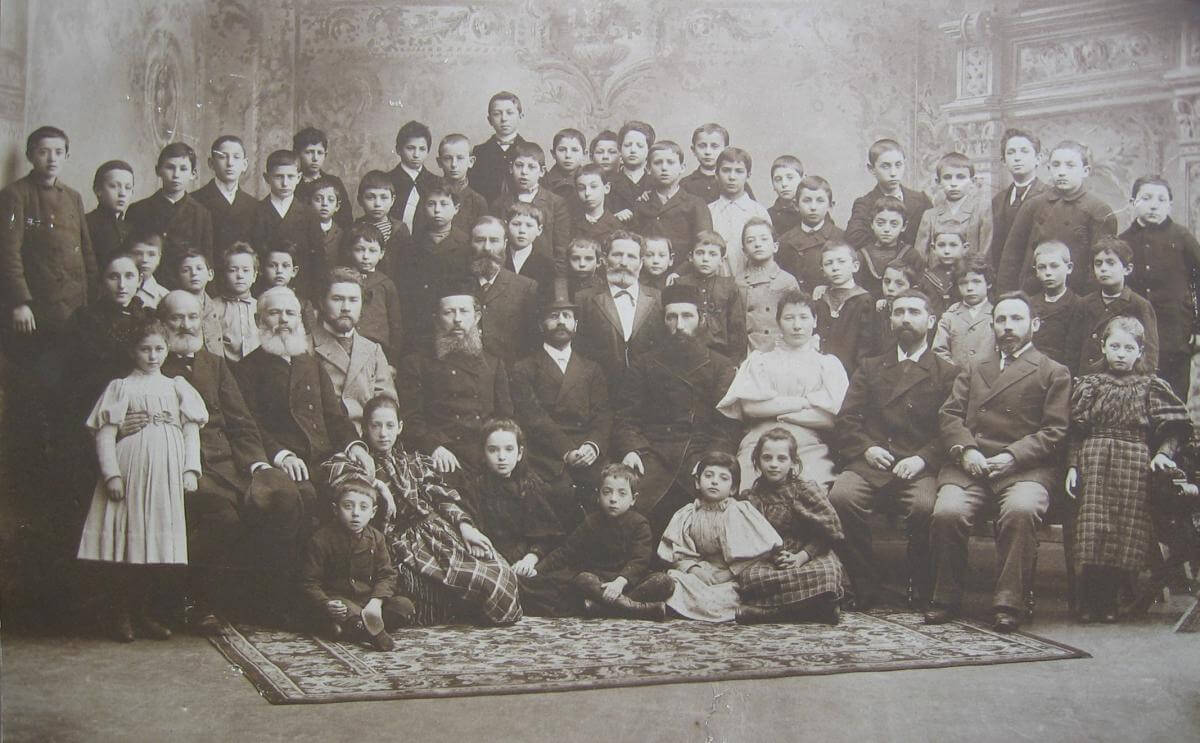
The Jewish school of Helsinki, 1895 Photo by Getty Images
Many of the 1,500 Jews who live in Finland today can trace their roots back to the Russian military, which brought them here as conscripts. Beginning in the 1850’s, Jews, who now constitute a tiny percentage of the country’s 5.5 million citizens, were conscripted into the czar’s army and served in the garrisons established in 11 towns in Finland. They were allowed to settle in Finland when they completed their military service.
“The Jews here are regarded as just Finns, they’re part of Finland. They’re not foreigners. And that’s quite a difference to most other European countries,” said Karmela Belinki, a prominent Finnish author and journalist.
Her family, originally from Lithuania, was among the Jews who were part of the so-called Cantonist system initiated in 1721 in which 12-year-old boys were forcibly taken from their homes to undergo military training before they joined the czar’s army. Some converted to Christianity after enduring beatings. By the end of the 1880s, Finland was home to about a thousand Jews. In 1917, the year of the two revolutions in Russia and the beginning of the Russian Civil War, Finland declared its independence. The following year Jews were granted citizenship.
‘Nobody was left’
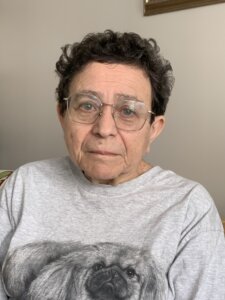
The Second World War began 22 years later but for the Finns, World War II was actually three distinct wars. In the Winter War (November 30, 1939–March 13, 1940) the Finns fought against the Soviet Union. Then the Finns fought against the Soviet Union as allies of Nazi Germany in the Continuation War (June 25, 1941–September 5, 1944). In the Lapland War (September 15, 1944–April 27, 1945) the Finns fought against the Germans in the arctic north.
The Soviets destroyed the synagogue in Viipuri, a major cultural and commercial Finnish city, on the first day of the Winter War but its Jews had already been evacuated and resettled in Turku.
“Nobody was left,” said Belinki. “The whole Korelian peninsula was evacuated. Imagine, a half a million people.”
Among the evacuees of Viipuri who started over in Turku was Chaim Zalman Belinki, Karmela’s father. Viipuri was a cosmopolitan city located in southeastern Finland, approximately 81 miles northwest of St. Petersburg. It’s now known as Vyborg and is part of Russia. About 11% of Finnish territory on the eastern border of the country, including much prime agricultural land, was ceded to the Soviet Union as a result of the Winter War and Continuation War.
There were about a quarter million German troops in Finland during the Continuation War but they didn’t harm a single Finnish Jew, though eight Jewish refugees from other nations in Finland were handed over to the Germans and all but one perished in Auschwitz.
‘And still we are here’
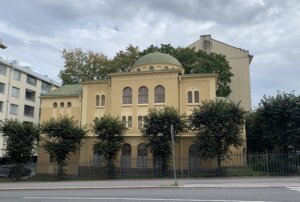
“The position of the Jewish community in Finland has always been a very unusual one,” said John B. Simon, a Jewish author from New York who has lived in Finland since 1984. “The Jews here have continued to have a kind of protective status. There’s a definite willingness of official Finland to recognize and protect the Jewish community.”
In Turku that has meant government funds to help with security at the synagogue, which was vandalized with red paint on Holocaust Remembrance Day in 2020. The shul in Turku, like the one in Helsinki, was built on land donated by the municipality before Finnish Jews were granted citizenship in 1918.
Karmela Belinki has fond memories of the synagogue and the city itself. Growing up in Turku, she remembers teachers coming from Israel to teach Finnish children about Judaism and the Yiddish Forverts arriving on a ship her father eagerly awaited. Another childhood memory from Turku involves house guests who were Holocaust survivors looking for their families.
“I remember that there was a man from Sweden sitting in an armchair and I wondered why he drank tea with salt,” she recalled. “He cried all the time because he couldn’t find anybody.”
The Turku shul, a two-story, yellow-brick building with a small dome on its roof, is among a handful of synagogues across Europe that survived World War II with little or no damage. On the ground floor there are photos of past rabbis and a cabinet of athletic trophies won by Finnish Jews from Turku, including the long-distance runner Elias Katz, one of the Flying Finns who won gold medals at the 1924 Olympics. Another cabinet displays old Talmud books from the late 1800’s. But there is no longer regular Talmud study in the synagogue.
The Jewish community in Turku has shrunk from a high of 350 in the post war years to perhaps less than a hundred today. The last bar mitzvah at the Turku synagogue took place two years ago. There hasn’t been a wedding there for about 30 years. Turku once had a store where Jews could buy kosher meat but it closed down long ago.
After the Six Day War in 1967 many of Turku’s Jews emigrated to Israel. Finland’s government donated weapons to Israel during the Jewish state’s War of Independence. Finland boasts the highest per-capita participation of any diaspora Jewish community in the 1948 war.
The community’s contraction doesn’t upset Serlo who remembers being a teenager and hearing his parents predict that Turku’s Jewish community would be gone within ten years.
“This story has been going on for 50 years,” said Serlo. “And, still, we are here.”
In a strange land
The Turku shul may be the only Orthodox synagogue in the world with a cross in its main sanctuary. It’s a small cross, part of a military medal enclosed in a framed 1942 proclamation by Carl Gustaf Emil Mannerheim, the commander of the Finnish Defence Forces during World War II who became president after the war. Another framed document in the shul’s all-wood sanctuary lists the names of close to two dozen Finnish Jews who died during the war.
The 23 Jewish fatalities during the Winter War and the Continuation War amount to the highest per capita loss of any religious denomination or minority in Finland. The Finnish historian Hannu Rautkallio has referred to The Winter War as the “war of independence” for Finnish Jews and the culmination of their assimilation into Finnish society.
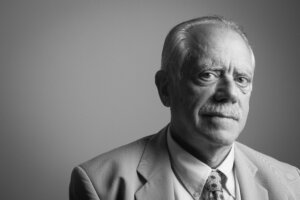
Today many Finns see Finland’s military pact with the Germans as part of the nation’s complicated history. Finland saw the alliance with the Third Reich as the only way of preserving its independence from the Soviet Union. Remaining neutral would have led to its occupation by either Russia or Germany. And the Germans were offering Finland desperately needed arms and food.
Simon was flabbergasted when he learned that Jewish Finns had fought with their Gentile countrymen alongside the Germans. He spent seven years researching that history for his 2017 novel Strangers in a Strange Land. The book, a hybrid of fiction and non-fiction, was shortlisted for the history book of the year in 2018 awarded by the Society of the Friends of History.
Initially, readers may have a hard time imagining why any nation would become allies of the Third Reich. But as Strangers explains, Finland watched the governments of Estonia, Latvia and Lithuania sign mutual assistance pacts with Russia only to become occupied by the Soviet army, followed by the installation of pro-Soviet regimes that “requested” that they join the Soviet Union.
“For most Finns, including many in the government and military command, the choice was simple,” Simon writes, “the prospect of another war against the Soviets without adequate air power, artillery or ammunition for the troops was enough to tip the scales in favor of cooperation with Germany.”
The Jews in the Finnish army knew that if Germany won the war, the fate of the Jewish people would be sealed. But the Jews served valiantly in the battle against the Soviets, the Germans awarded the Iron Cross for exceptional bravery and leadership in combat to three Jews, but all three declined the medal.
Assimilation and inter-marriage rates in Finland raise doubt about the community’s long term survival prospects. Author John Simon includes a sobering statistic in Strangers In A Strange Land: nearly every Jewish family in the country has a member who married outside the faith.
But the Helsinki Jewish community, Simon observed, gets revitalized by immigrants and people coming to work from Israel, which, like Finland, has a highly developed tech sector.
‘Most who listen to us are not Jewish’
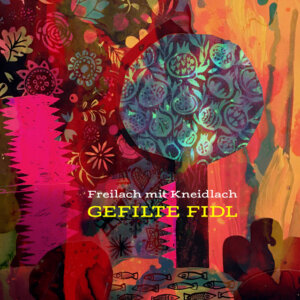
At a birthday dinner in the Helsinki apartment of klezmer pianist Eva Jacob in September family and friends sang Happy Birthday in English, Hebrew and Finnish. The meal included cheese made from reindeer milk.
Jacob, 73, left her home in Grozny, Chechnya, to study at what was then known as the Leningrad Conservatory where she met and married a Finnish cellist. She’s been in Finland since 1976. Most of her immediate family from Grozny made aliyah to Israel. Jacob is the artistic director of the Helsinki Klezmer Festival, which has been attended by the president of Finland twice in recent years. She has also directed the Jewish choir in Helsinki for 25 years and plays with her son Daniel Shaul in the klezmer band Freilach Mit Kneidlach.
“[Most of] the people who come to listen to us perform are not Jewish,” Jacob told me. A klezmer concert in the fall of 2022 done as a recreation of a Jewish wedding drew an audience of 120. But there were only three Jews in the audience, she said.
‘Why Finland?’
Rabbi Benjamin Wolff has served as the Lubavitch emissary in Helsinki for 21 years. He said that, though Jewish community in Finland is not very big, there was still worthwhile work to be done in the country.
“We knew that it was about dealing with individuals. We understood that and that’s what we’re doing,” he told me during a dinner celebrating the wedding of his daughter .
Rabbi Wolff’s wife happens to be the granddaughter of Mordechai Eliyahu Schwei, a Lubavitcher rabbi sent by the previous Lubavitcher rebbe, Yosef Yitzchak Schneersohn, to Turku in the mid-1930’s to teach young Jews. Now, nearly a century later, Wolff is running a nursery school in Helsinki.
Before I left the dinner, Wolff asked me why I decided to visit Finland. I explained that I have an old friend named Charlie who divides his time between Vermont and Helsinki.
“Is he Jewish?” the rabbi inquired.















